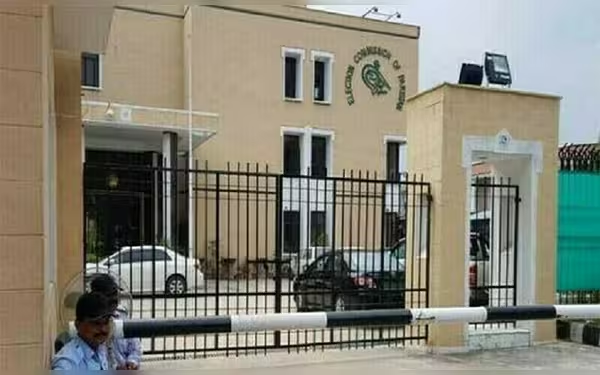Saturday, November 16, 2024 03:19 PM
ECP Delays Implementation of Supreme Court's Reserved Seats Ruling
- ECP faces criticism for delaying Supreme Court's ruling.
- Government may influence ECP's actions regarding reserved seats.
- Indecision raises concerns over electoral integrity in Pakistan.
 Image Credits: dawn
Image Credits: dawnECP's delay in implementing the Supreme Court's ruling on reserved seats raises concerns over electoral integrity in Pakistan.
The Election Commission of Pakistan (ECP) is currently facing scrutiny for its apparent delay in implementing the Supreme Court's ruling regarding reserved seats in parliament. This situation has raised eyebrows, especially after the detailed judgement was released, which many believe should have prompted immediate action from the ECP. Instead, the commission seems to be taking its "sweet time" to address the matter, leading to speculation about its intentions and the potential influence of the government.
On Tuesday, the ECP convened yet another meeting to discuss the Supreme Court's detailed judgement. However, like previous meetings, this one ended without a clear resolution. Insiders suggest that the ECP is deliberately stalling, possibly to allow the government to make amendments to the Elections Act 2017. This act has been perceived as a tool to undermine the Supreme Court's order and prevent the Pakistan Tehreek-e-Insaf (PTI) from securing reserved seats.
It is important to note that the Supreme Court had previously ruled in favor of the PTI, declaring them eligible for reserved seats in parliament. This decision was made by a majority of judges who emphasized the need for immediate implementation. However, the ECP's hesitation has provided the government with a window to introduce changes that could complicate the situation further.
National Assembly Speaker Ayaz Sadiq's recent letter to the chief election commissioner has added another layer to this unfolding drama. In his correspondence, he argued that the Supreme Court's judgement was based on laws that existed before the recent amendments, suggesting that it should not be enforced. This perspective aligns with the government's stance, as expressed by Information Minister Attaullah Tarar, who stated that the PTI made an "irreversible mistake" by aligning with a non-parliamentary party.
The ongoing indecision from the ECP raises critical questions about the integrity of the electoral process in Pakistan. The commission's actions—or lack thereof—could be seen as a reflection of the broader political landscape, where the lines between law and politics often blur. As the situation develops, it remains to be seen whether the ECP will ultimately uphold the Supreme Court's ruling or succumb to political pressures.
The ECP's delay in implementing the Supreme Court's order on reserved seats not only affects the PTI but also sets a concerning precedent for the electoral process in Pakistan. The commission's next steps will be crucial in determining whether justice is served or if political maneuvering will overshadow the rule of law. As citizens, it is essential to remain vigilant and informed about these developments, as they have far-reaching implications for the future of democracy in the country.













